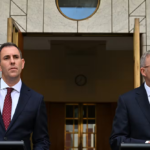Rural health services essential to a healthy country
Australian’s enjoy one of the best healthcare systems in the world, but not everyone benefits to the same degree. Sue McAlpin looks at the health differential between Australians in the metropolitan areas and those living in rural and remote areas.
Over the past twenty years governments have come to recognise the health differential between Australians residing in rural and remote Australia compared to those in metropolitan areas.
The Australian Institute of Health and Welfare (2010) suggested a number of factors responsible for the poorer health, which include lower levels of economic advantage, less income, employment and educational levels, increased risk of occupations such as mining and farming, greater levels of alcohol abuse and less access to health services, which includes doctors.
The lack of access to medical services for many rural people contributes to delays in diagnosis and effective treatment. In response there have been many initiatives and incentives to encourage doctors to the bush. A sustainable health workforce is something that is essential to maintain the health of rural people. I recently undertook a study to collect the oral histories of doctors who had worked in rural practice over many decades.
The experiences of rural practice were examined to determine the contributing factors to working in rural areas over many decades. Many of the participants described various aspects of their practice which were satisfying and rewarding. They included the positive interaction with colleagues, the patients and the collaborative work environment. One doctor described it as – "I enjoyed my interaction with the people, the patients, the colleagues I worked with, the nurses, the doctors, and people in general in other fields. It’s just amazing, what a profession, I really feel I’m blessed, I’m blessed that I’ve been able to have been part of this whole thing".
The simpler responses were humbling as they provided insights into making a difference to people’s health. They were expressed by another participant – "I don’t suppose there are any other highlights except seeing people get well, and helping them get better, being able to sort of do something for them".
If the intrinsic rewards of rural practice can be disseminated to young health professionals, it may encourage others to experience the satisfying work rural health has to offer. This may then contribute to the provision of delivering sustainable quality health services to rural communities.
The philosophy one general practitioner of thirty years expressed is that his value to the local community is not about being measured by financial terms – ‘I think the things that I was interested in were commitment and service to your fellow man ‘.
Rural practice can provide a rewarding career over a long period if health professionals work in a supportive environment. This in turn contributes a sustainable rural workforce and the ultimate health of the communities in which these health professionals work.
Susan McAlpin is the Associate Professor from the School of Dentistry and Health Sciences at Charles Sturt University in Wagga Wagga. She is also the immediate past Chair of the National Rural Health Alliance, and a board member of the Australian College of Health Service Executives and the Riverina Division of General Practice and Primary Health Executive. Sue is currently an executive member of the NSW Institute of Rural Clinical Services and Teaching and a member of the Dietitians Standards and Accreditation Advisory Committee.
Susan McAlpin is the Associate Professor from the School of Dentistry and Health Sciences at Charles Sturt University in Wagga Wagga. She is also the immediate past Chair of the National Rural Health Alliance and a board member of the Australian College of Health Service Executives and the Riverina Division of General Practice and Primary Health Executive. Sue is currently an executive member of the NSW Institute of Rural Clinical Services and Teaching and a member of the Dietitians Standards and Accreditation Advisory Committee.













